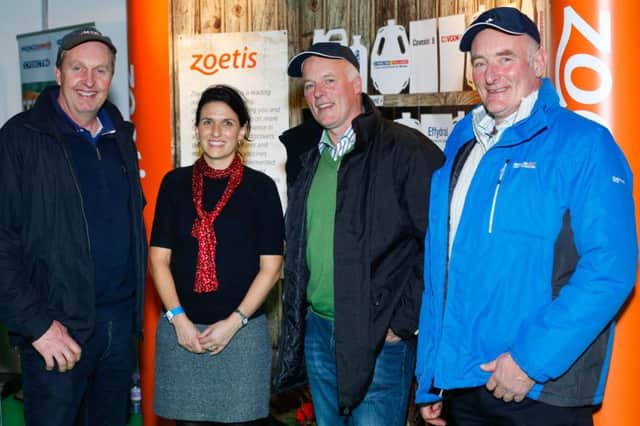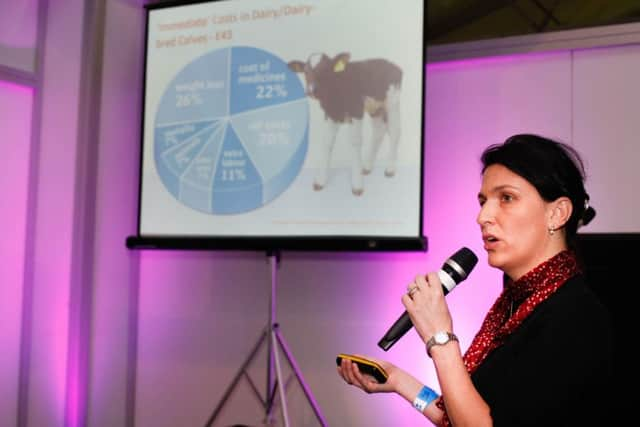Calf rearing - the major topic


Aurelie Moralis, veterinary surgeon with Zoetis, addressed one of the seminars at the Winter Fair on this topic and had many farmers participating in individual discussions on the subject afterwards. She also noted that this subject was a frequent topic of conversation on the Zoetis stand.
As milk prices show no immediate signs of improving farmers are looking at ways of cutting costs in the dairy enterprise. One very obvious opportunity to do this is in the calf rearing aspect. The average cost to rear a replacement heifer is in the region of £2,000 per heifer. In a 100 cow herd with a 30% replacement rate and a yield of 7,500 litres per cow this equates to a cost of six pence per litre. There is a significant range in rearing costs with the top 25% CAFRE benchmarkers achieving an average rearing cost of £1,500 per head. The Northern Ireland average for calving heifers is 33 months so there is room for a marked improvement.
Advertisement
Hide AdAdvertisement
Hide AdAurelie said: “The top farms focus closely on all aspects of the heifer rearing enterprise such as careful management of calves from birth through to weaning to reduce disease risks. The key respiratory viruses in young dairy calves are BRSv 1 and PI3v. These viruses can act individually or in combination to cause significant lung and airway damage and also reduce the animal’s resistance to secondary bacterial infections.


“Calves can be vaccinated against the two key respiratory viruses BRSv and PI3v from nine days of age with Rispoval ®IntraNasal which will protect them for 12 weeks, ensuring calves are covered through the critical pre-weaning period when poor respiratory health can impact growth rates, age at first calving and subsequent milk yields.”
Aurelie highlighted the importance of achieving growth targets and monitoring growth early on in life.
“UK research has shown that high calf growth rates from 0-9 months of age, leading to excellent fertility of maiden heifers and calving at 21-23 months resulted in survival rates of 80% from first calving to five years of age, and a total milk production of 24000 litres over five years from birth. Heifers calving at 30 months as a result of poor calf growth rates and fertility ended up with an average milk production of 8000 litres over five years and a survival rate of only 30%!”